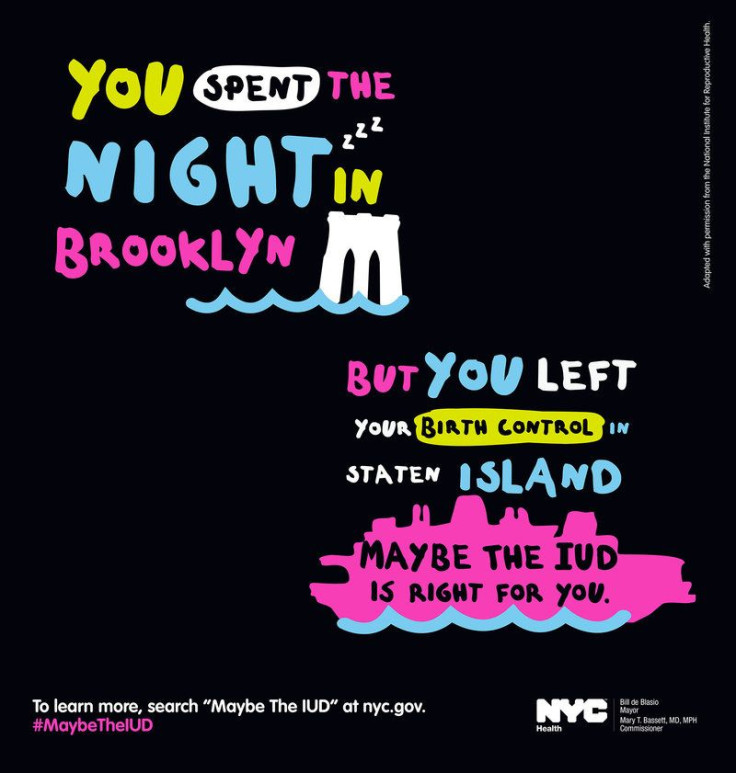NYC's Health Department Launches 'Maybe The IUD' Campaign To Help Women Choose The Best Birth Control

Subway rides are now doubling as sex education, thanks to a new campaign from the New York City Department of Health and Mental Hygiene, called “Maybe The IUD.”
Although, it's not just subways: According to a campaign press release, NYC's health department will roll out bus shelter ads, social media and print materials, as well as a dedicated website that ultimately "stresses the importance of getting accurate information about contraceptive options, so that every woman can choose the method that best meets her needs and lifestyle." In addition to the ad pictured above, another reads, "The IUD is 99 percent effective at preventing pregnancy. That's one less thing to worry about." IUD is short for intrauterine device — a T-shaped device a woman’s health provider can implant into her uterus, where it can effectively prevent pregnancy up to 12 years after the fact, Planned Parenthood reported.
"Sex is part of life. Talking about birth control is part of life," Deborah Kaplan, the assistant commissioner for the health department's bureau of maternal, infant and reproductive health, told NPR. "And if we can make this more open, we think more women will be comfortable going to their providers, asking about this and thinking about the different options they have."
Kaplan added that in NYC, six out of every 10 pregnancies is unintended. And since the IUD in particular has become one of the more popular forms of birth control, Kaplan and her team believe this campaign will help to dispel any myths (similar to what actress Jessica Biel is doing) and clear up misinformation.
True, the IUD isn’t for everyone — as effective as it is, it still remains one of the more costly forms of contraception. But that’s also the point of the campaign, to reinforce that women have many options, some of which are low-cost and even free.
“All women, regardless of life circumstances or ability to pay, have the right to make informed choices about their reproductive health and act on those choices by receiving accurate information and easy access to the full range of birth control options,” said health commissioner Dr. Mary T. Bassett.
To help spread the word, NYC's health department has partnered with the City University of New York (CUNY), where NPR cited that “many of CUNY's students lack access to information and services related to reproductive health care.” Perhaps unsurprisingly the unintended pregnancy rate among students in their 20s tends to err on the higher side.
“Being able to plan your pregnancies is a critical piece of moving forward with your goals around education,” Kaplan said.
Bassett said that this is the first time a municipal health department has done this, and she's proud to be "leading the way.”
"Maybe The IUD" is one part of a five year initiative developed to "enhance and elevate community dialogue and engagement on sexual and reproductive justice." Women can visit the health department's website for more information.



























